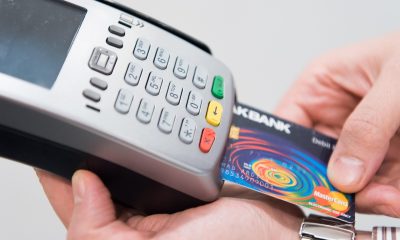Fintech
Fintech Companies Have Made Banking Accessible to 74% of People in Latin America
Fintech growth in Latin America has surged 340% in a decade, boosting financial inclusion. Bank account access rose from 55% in 2017 to over 80% today. Digital payments are rising, yet cash remains prevalent. Challenges include internet access and financial education. Fintech companies are expanding into insurance, investments, and “buy now, pay later” services.

Fintech companies are becoming the new vehicles that are taking over Colombia with more financial inclusion. This is confirmed by a report presented by Mastercad, which also states that this behavior is being seen in strategic areas of the region such as Brazil and Mexico. The report also highlights that the panorama of these ‘neo companies’ has grown 340% since almost a decade ago.
At the same time, access to financial services in the region has improved significantly, and a clear example is how in 2017, only 55% of the population had a bank or digital account, while in 2021 this figure increased to 74%, today exceeding 80% in several countries.
This progress is largely due to fintech companies, which have facilitated the opening of accounts and access to credit for millions of people, not only in Latin America, but worldwide, allowing many to generate banking knowledge through the web.
Despite the growth of fintech, cash continues to dominate
However, as digital payments continue to expand, cash usage remains dominant. Mastercard said 40% of low-income respondents say they pay more than half of their monthly expenses in cash, compared to 25% of high-income individuals.
This is why digital banks currently empower underserved populations, as low-income account holders (35%) are more likely to own accounts at digital banks.
There are more digital transactions
The use of digital payments is constantly increasing, while 63% of respondents still use cash for daily or weekly transactions, 61% already use debit cards and 45% credit cards. In addition, the popularity of mobile transfers has grown as around 88% of users use their phones to make financial transactions, from apps.
Furthermore, more than half of respondents in Brazil (58%), Colombia (52%) and Peru (55%) say that fintech companies have provided them with access to financial products that were previously unavailable to them.
Fintech companies have been a key driver of financial inclusion in Latin America
As the financial ecosystem matures, fintech companies must adapt to continue growing. Currently, many have begun to diversify their services, exploring areas such as insurance, investments, and “buy now, pay later” models, which are currently handled by multiple digital and physical banks.
Fintech companies have been a key driver of financial inclusion in Latin America, allowing millions to access bank accounts, credit and digital payments for the first time. However, access to the Internet and mobile devices remains limited in certain communities, preventing a portion of the population from truly taking advantage of all these digital tools.
In addition, mistrust and lack of financial education make the transition from cash to electronic payments difficult, especially among young people and low-income people. A useful strategy for this would be to expand internet coverage, develop accessible solutions for those without smartphones and reinforce digital education in a large part of the country.
__
(Featured image by rupixen via Unsplash)
DISCLAIMER: This article was written by a third party contributor and does not reflect the opinion of Born2Invest, its management, staff or its associates. Please review our disclaimer for more information.
This article may include forward-looking statements. These forward-looking statements generally are identified by the words “believe,” “project,” “estimate,” “become,” “plan,” “will,” and similar expressions. These forward-looking statements involve known and unknown risks as well as uncertainties, including those discussed in the following cautionary statements and elsewhere in this article and on this site. Although the Company may believe that its expectations are based on reasonable assumptions, the actual results that the Company may achieve may differ materially from any forward-looking statements, which reflect the opinions of the management of the Company only as of the date hereof. Additionally, please make sure to read these important disclosures.
First published in LR. A third-party contributor translated and adapted the article from the original. In case of discrepancy, the original will prevail.
Although we made reasonable efforts to provide accurate translations, some parts may be incorrect. Born2Invest assumes no responsibility for errors, omissions or ambiguities in the translations provided on this website. Any person or entity relying on translated content does so at their own risk. Born2Invest is not responsible for losses caused by such reliance on the accuracy or reliability of translated information. If you wish to report an error or inaccuracy in the translation, we encourage you to contact us

-

 Impact Investing4 days ago
Impact Investing4 days agoBNP Paribas Delivers Record 2025 Results and Surpasses Sustainable Finance Targets
-

 Biotech2 weeks ago
Biotech2 weeks agoTwogee Biotech Advances Industrial Enzyme Solutions for Circular Production
-

 Crypto1 day ago
Crypto1 day agoUniswap and BlackRock Partner to Launch BUIDL in DeFi
-

 Cannabis1 week ago
Cannabis1 week agoScientifically Verified F1 Hybrids Set New Benchmark for Indoor Cannabis Yield and Consistency
























